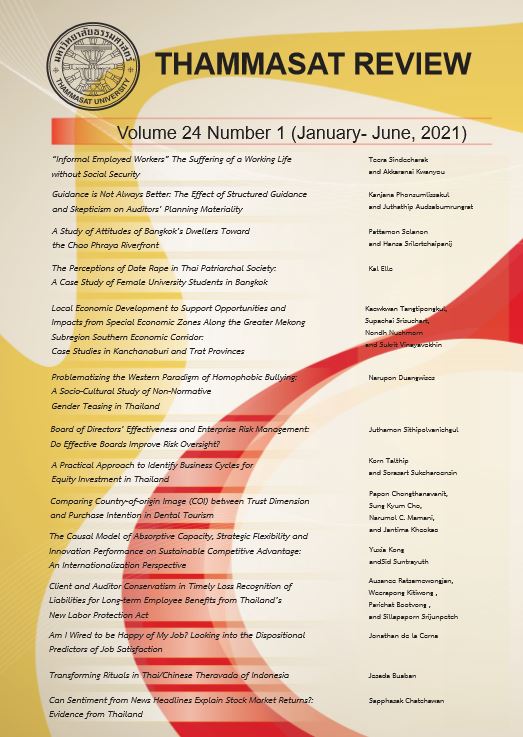Guidance is Not Always Better: The Effect of Structured Guidance and Skepticism on Auditors’ Planning Materiality
Keywords:
Professional Skepticism, Planning Materiality, Structured GuidanceAbstract
In this paper we examine the effect of professional skepticism on auditor judgments on planning materiality. An experimental design was conducted with sixty-two auditors from a large public accounting firm in Thailand.Based on measuring the professional skepticism score of Hurtt (2010), results from our study indicate that when faced with structured materiality guidance, audit managers who have less professional skepticism make inappropriate planning materiality assessments but there is no effect of structured guidance on those who have more professional skepticism. Our results contribute to the literature on materiality judgments and professional skepticism by providing evidence of the dysfunctionality of structured guidance in audit planning materiality and by shedding light on the benefit of using professional skepticism to reduce the detrimental effects of structured guidance. This study also provides important insights for standard setters regarding the enhancing the effectiveness of audit process from raising individual skepticism during the process of determining both overall materiality and performance materiality levels.
Downloads
Published
How to Cite
Issue
Section
License
The opinions and ideas expressed in all submissions published in Thammasat Review are solely that of the author(s) and do not necessarily reflect that of the editors or the editorial board.
The copyright of all articles including all written content and illustrations belong to Thammasat Review. Any individuals or organisation wishing to publish, reproduce and distribute a particular manuscript must seek permission from the journal first.








